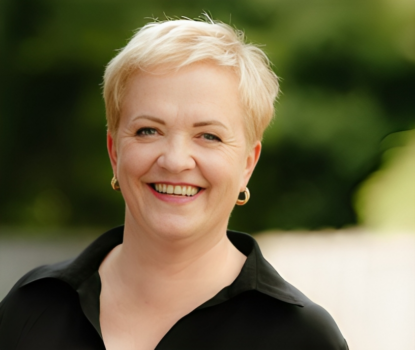
Dialogue
Seven Benefits That Preschool Can Provide to Families
Daina Kājiņa, the head of the Latvian Private Preschool Association and the director of the “CreaKids” preschool, highlights seven benefits that preschools can offer to families.
Preschools not only provide early childhood education but also create the first learning experiences for children. They promote socialization, integration, and an understanding of environmental and sustainability issues. Preschool is a place where not only the child learns, but the entire family. Moreover, it offers parents the opportunity to meet like-minded individuals, share experiences, and participate in the learning process.
Early Preschool Education:
Preschool education and all the activities it encompasses give children the opportunity to develop various skills and knowledge under the guidance of professional educators. It prepares them step by step for starting school. The goal of early preschool education is also to provide children with a safe, nurturing, and motivating environment, which is essential for their overall development. The experiences gained in preschool often determine a child’s attitude towards learning – if the kindergarten has sparked interest and a love for learning through play and games, the child is likely to be motivated in school as well. Just as there is only one chance to make a first impression, kindergarten can create the first impression of education, helping to develop reading skills and a talent for exploration.
Societal Integration:
Preschools can play a significant role in promoting societal integration. They are places where children from various cultures, families speaking different languages, and more come together. Experience shows that at this age, they quickly find a common language and realize the importance of diversity. Preschools promote not only children’s but also parents’ integration – if there are families from different nationalities and cultures in a group, shared activities foster the exchange of knowledge and traditions. Such an environment not only promotes understanding but also helps integrate into society. A vivid example is families from Ukraine – children adapt very quickly, make friends among local children, and parents, through the daily routines and traditions of the kindergarten, get to know Latvian society as a whole.
A Place Where Parents Can Learn
The preschool environment and the offered activities often provide an opportunity for parents to share experiences, knowledge, and ideas, learning from each other as well as from educators. Preschools should consider various training opportunities for parents, such as child development, parenting, fostering creativity, various pedagogical practices, nutrition, sustainability, and more. Our experience shows that parents appreciate these opportunities and willingly participate because it helps them understand their child’s inner world better and enhances their skills and knowledge, strengthening their bond with their children.
Sustainability and Environmental Issues
The educational pilot project on the environment, particularly emphasizing a zero-waste lifestyle and composting, carried out at the “CreaKids” branch in Babīte, demonstrated that preschool can be an excellent place to acquire knowledge related to the environment and sustainability. Explaining these issues to children in an engaging and interactive way, such as by tracking the amount of food waste generated and brainstorming ways to reduce it, can not only promote the children’s understanding but also involve the entire family. Children eagerly learn about nature conservation, waste reduction, and energy conservation while observing nature, understanding its cycles and significance. Most importantly, children often become advocates for green thinking, encouraging parents to implement what they have learned in preschool at home.
Communication Skills – for Both Children and Parents
It’s no secret that preschools help children develop communication skills – they learn to converse with peers, teachers, and understand when it’s time to speak and when to listen to others, among other things. Through play and games, children develop teamwork and cooperation skills. They learn the importance of helping others and when necessary, asking for help. Preschools are often a place where parents can also refine these skills. The preschool is the first point of contact with the education system for parents, so collaboration and communication with other parents, teachers, and preschool management are crucial. Open, collaborative communication not only allows parents to become familiar with the curriculum, plan, and activities but also enables them to actively participate in their child’s education process – these skills will undoubtedly be valuable when their child begins their school journey.
Child’s Physical Development
Young children are active and enjoy participating in various activities, movement games, and playtime. Preschool daily schedules always allocate time for both physical activities and outdoor leisure. Both of these aspects are crucial for a child’s development, and it’s an opportunity to shape a child’s attitude towards sports, active play, and spending time outdoors. Although Latvian weather conditions may not always be favourable, various games can demonstrate to children that it’s interesting to spend time outside in different weather, provided they choose appropriate clothing and suitable activities. Furthermore, practices implemented in preschool can often serve as inspiration for parents as well.
Stronger Bond with the Child
It might sound unusual to some, but preschool can help parents and children build a stronger bond and enhance parents’ understanding of their child’s personality. Several hours a day spent by the child without parents not only involve their socialization with peers but also provide parents with feedback from educators. Parents can learn about their child’s behaviour, independence, openness, and how their behaviour and habits change when they are away from their parents. Every parent wants the best for their child, so the information provided by teachers can be very useful. Here, I would encourage educators to help parents strengthen their bond with their children by focusing on what the child can do rather than what they cannot. Recognizing that both parents and teachers are acting in the child’s best interests and being open to communication will undoubtedly lead to successful collaboration, benefiting the child.

 Log In
Log In